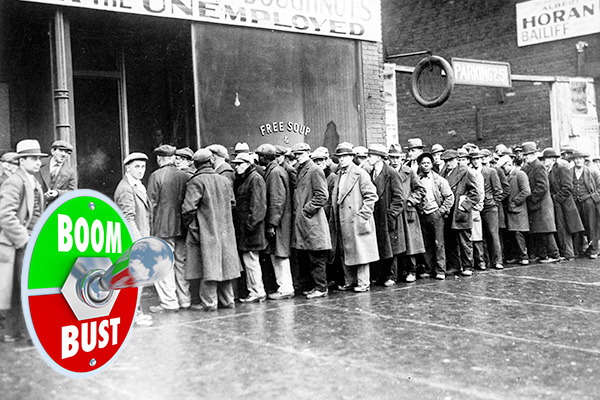As a home-based entrepreneur, understanding the economic landscape is crucial for making informed business decisions. One significant aspect of this landscape is the occurrence of recessions. But what exactly is a recession, and how can you tell if one is on the horizon? Let’s dive into the essentials to help you stay prepared and resilient.
What is a Recession?
A recession is a significant decline in economic activity that lasts for an extended period, typically defined as two consecutive quarters of negative GDP (Gross Domestic Product) growth. During a recession, businesses may experience decreased sales, consumers may cut back on spending, and unemployment rates often rise. The overall economic slowdown can have a cascading effect, influencing various sectors and impacting both large corporations and small home-based businesses alike.
Traditional Signs That a Recession is Coming
- Declining GDP: The Gross Domestic Product is a key indicator of economic health. A consistent decline in GDP over two or more quarters is a traditional marker of a recession. Monitoring GDP trends can give you an early indication of economic downturns.
- Rising Unemployment Rates: An increase in unemployment rates is often one of the earliest signs of a recession. As companies anticipate reduced demand, they may begin to cut back on their workforce. Keeping an eye on employment statistics can help you gauge the health of the economy.
- Decreased Consumer Spending: Consumer spending drives a significant portion of economic activity. When consumers start spending less due to uncertainty or reduced income, it can signal the onset of a recession. Pay attention to retail sales data and consumer confidence indices.
- Falling Stock Market: The stock market can reflect investor confidence in the economy. A sustained decline in stock prices can indicate that investors are worried about future economic performance, often preceding a recession.
- Inverted Yield Curve: The yield curve, which plots interest rates of bonds of different maturities, typically slopes upward. However, when short-term interest rates become higher than long-term rates, the yield curve inverts. This inversion has historically been a reliable predictor of recessions.
- Reduced Industrial Production: A decrease in industrial production and manufacturing output can be a sign of an economic slowdown. This decline often results from reduced consumer demand and can be a precursor to broader economic contraction.
- Lower Business Investments: When businesses anticipate tough economic times, they may scale back on investments in new projects, equipment, and expansion. Monitoring business investment trends can provide insights into economic expectations.
- Increased Debt Levels: High levels of debt, both personal and corporate, can strain the economy, especially if there’s a sudden shift in financial conditions. Rising debt defaults can lead to financial instability and contribute to a recession.
Staying Resilient as a Home-Based Entrepreneur
Being aware of these traditional signs can help you prepare your home-based business for potential economic challenges. Here are a few strategies to consider:
- Diversify Your Income Streams: Relying on multiple sources of income can cushion the impact of a recession. Explore new markets or offer additional services to broaden your revenue base.
- Manage Your Expenses: Keep a close eye on your business expenses and identify areas where you can cut costs without compromising quality. Maintaining a lean operation can help you weather economic downturns.
- Build an Emergency Fund: Having a financial buffer can provide peace of mind and ensure you have the resources to navigate through tough times. Aim to set aside funds that can cover several months of essential expenses.
- Stay Informed: Continuously educate yourself about economic trends and how they might impact your industry. Knowledge is power, and staying informed will help you make proactive decisions.
Understanding what a recession is and recognizing its traditional signs are vital for any home-based entrepreneur. By staying vigilant and prepared, you can better navigate economic uncertainties and ensure the longevity and success of your business.


